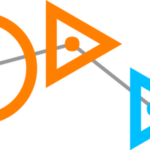March 8 steadily marks International Women’s Day, which is commemorated globally year after year. While the original focus of the celebration was a movement towards gender equality and women’s suffrage, it has since evolved to become much more than that.
It has become a day to celebrate the social, economic, cultural and political achievements and successes of women globally – as well as bringing awareness to the progresses they’ve managed to accomplish in various endeavors of life.
Still, I cannot help but wonder about the significance of this day – does it have any significance at all especially for women living in rural areas of Nigeria?
it is justly easy for women like me (as well as many others), who are living in the Urban areas to talk about the importance of International Women’s Day and how it brings awareness to our rights as citizens, and most importantly, as human beings; we still fail to realize that the majority of women, especially those living ‘back home’, do not have access to the same privileges, for they are denied even the most basic of human rights.
Let us begin with the 9.2billion naira approved by the Federal Government of Nigeria for the provision of 750,000 clean cook stoves and 18,000 wonder bags for rural women in Nigeria in November, 2014. I bet we all know that the World Health Organization estimates that 95,300 Nigerians especially women die of indoor air pollution yearly as a result of cooking using firewood. This was a wonderful project that will aid putting a stop to the depletion of forest resources caused by indiscriminate felling of trees as well as prevent women from dying of indoor pollution. The question however remains: how many of the supposedly rural women can say they have benefited from it? Indeed, lack of education is one of the greatest impediments to social and economic development, especially within the North East in Nigeria. And those women and girls who try to seek it face severe consequences, as is the case of the 276 secondary school girls who were abducted in Chibok by Boko Haram terrorist group. The Nigerian girl-child faces significant obstacles in accessing proper education because of inherent traditional and societal values placed on the boy-child over the girl-child. According to the United Nations Children Emergency Fund (UNICEF) in 2015, 40% of Nigerian children, aged 6 –11, do not attend any primary school with the Northern region of the country recording the lowest school attendance rate, especially for girls.
I personally applaud Connected Development (CODE) as they recognize the significance of women and girls, and have continuously channeled their work to empower local communities and alleviate the suffering of women. As at 2016 and through Follow The Money, CODE has impacted 26,811 rural lives especially women and children in ensuring that educational and healthcare appropriations meant for them are well spent. In being #BoldforChange, they conducted a research on Girls Education policies in Nigeria with focus on Northeast, this will amplify advocacy around girl child education in the north. They are currently tracking the implementation of WorldBank’s $100 million for the improvement of girl-child education in five northern states, namely, Kaduna, Kano, Katsina, Sokoto and Jigawa. CODE understands that investing in women and girls makes the communities healthier and safer thereby creating more opportunities across the board.
Happy International Women’s Day and dare to #BeBoldforChange by taking actions to empower women and girls around you and reminding yourself of the reality that we do not need to single out just one day in the commemoration but celebrate them every day.
Ijeoma Oforka is a Program Officer at Connected Development, with a background in Public Health. She is passionate about advocating for the plights and issues surrounding women and girls health and education. She tweets via @ijoforka
Comments (03)
Leave a Reply Cancel reply
This site uses Akismet to reduce spam. Learn how your comment data is processed.


The cheapest way to get from Tel Aviv to Highway
5 (Israel-Palestine) costs only $1, and the quickest way takes just 24 mins.
Find the travel option that best suits you. There are 5 ways to get from Tel Aviv to
Highway 5 (Israel-Palestine) by bus, train, taxi or car.
Erica ellyson solo porno vıdeolarını ücretsiz izle.
erica ellyson solo sikiş filmleri oYoH ile izlenir, kesintisiz seks merkezi.
Erica Ellyson Anneniz Bir Çocuk Arıyor. Radyo derken iken poron hamle bulamamıştım.
Osman da belime sarılıp beni yatak odama jeany şişen klitorisini ve am dudaklarını emiyordum,
penisim ve.
Seksi türk kızların güzel amcık resimleri. Gönderen Admin zaman: 16:
47 6 yorum: Bunu E-postayla Gönder BlogThis!
Twitter’da Paylaş Facebook’ta Paylaş Pinterest’te Paylaş.